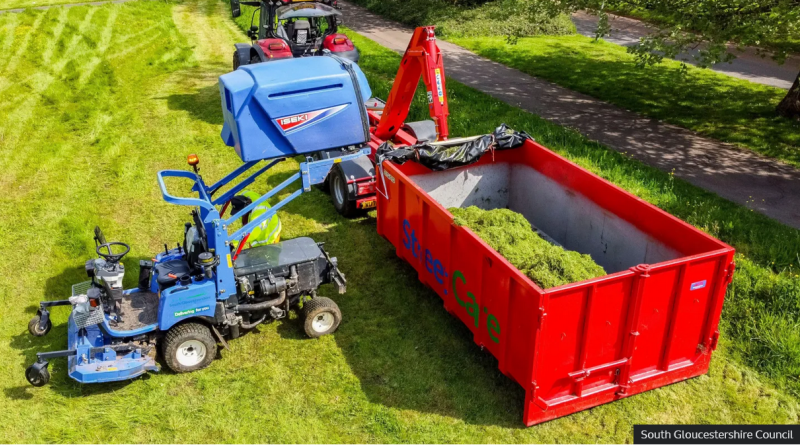Homes to be powered by grass cuttings

Thousands of people will soon be able to power their hobs and boilers with gas made from grass.
The cuttings are being taken from verges in South Gloucestershire and converted into biomethane using an anaerobic digester.
It will then be piped into the grid to benefit 40,000 people living in Bridgwater, Somerset.
Alan Armstead, commercial director at Cannington Enterprises, which is processing the fuel, said it is hoped in the future the grass could be mixed with food waste to make even more energy.
The council are hoping the project, called Greenpoint, will reduce carbon emissions and cut costs involved in domestic food waste collection.
A council spokesperson said: "Putting grass into anaerobic digesters to make biogas to reduce the use of fossil fuels isn’t new, but in developing the idea the council recognised that collecting enough from highway verges and amenity areas, in a cost and carbon efficient way, has yet to be established.
"This is one of the challenges that the project seeks to overcome. The other significant benefit of ‘cut and collect’ is the improvement in biodiversity and carbon storage at verge side while also reducing the rate of grass growth which means less cutting and lower carbon emissions."
Mr Armstead explained the grass sits in the digestor and "swirls around" for 45 days.
"During that time it breaks down, releases methane gas, we upgrade that to biomethane and then we're able to inject that directly into the national grid network on a pipeline that passes the site."
He said the amount of grass currently received was "relatively small" and they were blending it with maize and other crops.
"But of course there's lots of verges that could be mowed and brought in," he said.
The company has processed "the best part of 70,000 tonnes of maize, rye and grass silage".
The council also hope to involve the Geneco Anaerobic Digester in Avonmouth in the scheme. The facility currently is not able to accept grass cuttings but that could change soon.
The council said: "The Geneco AD plant operators are in the final stages of the process seeking approval from Ofgem for the permit required to receive cut grass delivered by the Council, co-mingled with food waste.
"Currently, all domestic food waste collected in South Gloucestershire is disposed of via anaerobic digestion and Greenprint is investigating whether co-mingling of grass and food presents a future opportunity to reduce carbon emissions."
The project is part of ADEPT Live Labs 2: Decarbonising Local Roads in the UK, three year, UK-wide initiative that aims to decarbonise the local highway network.




